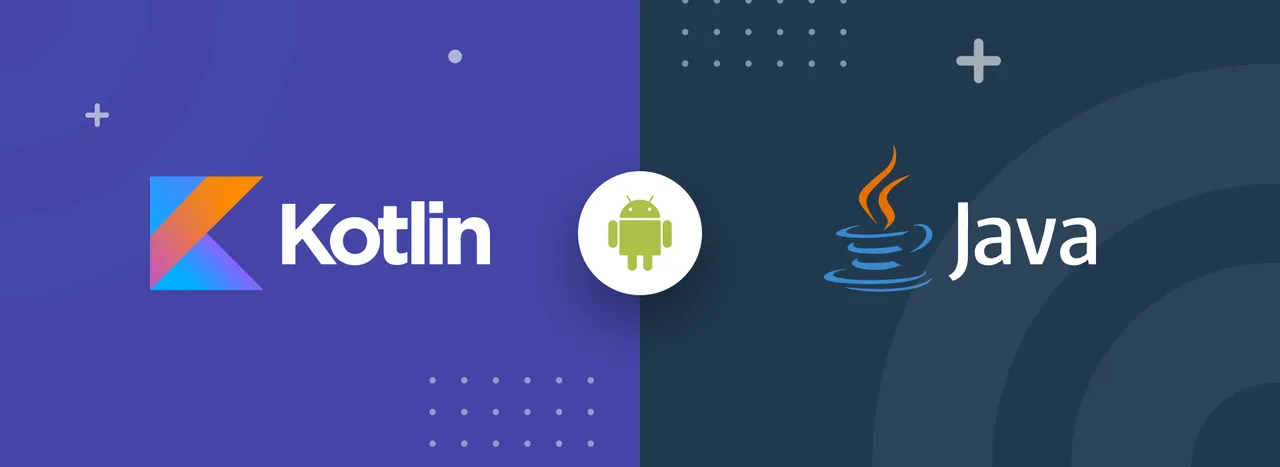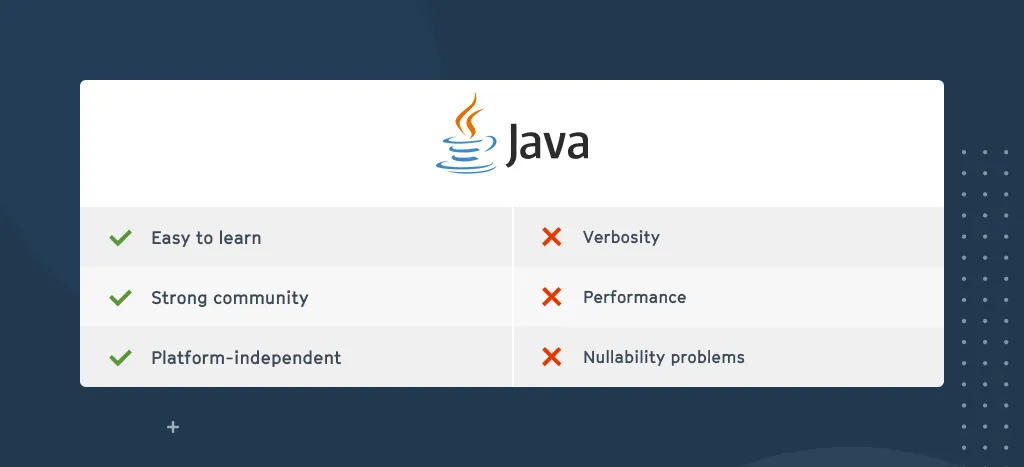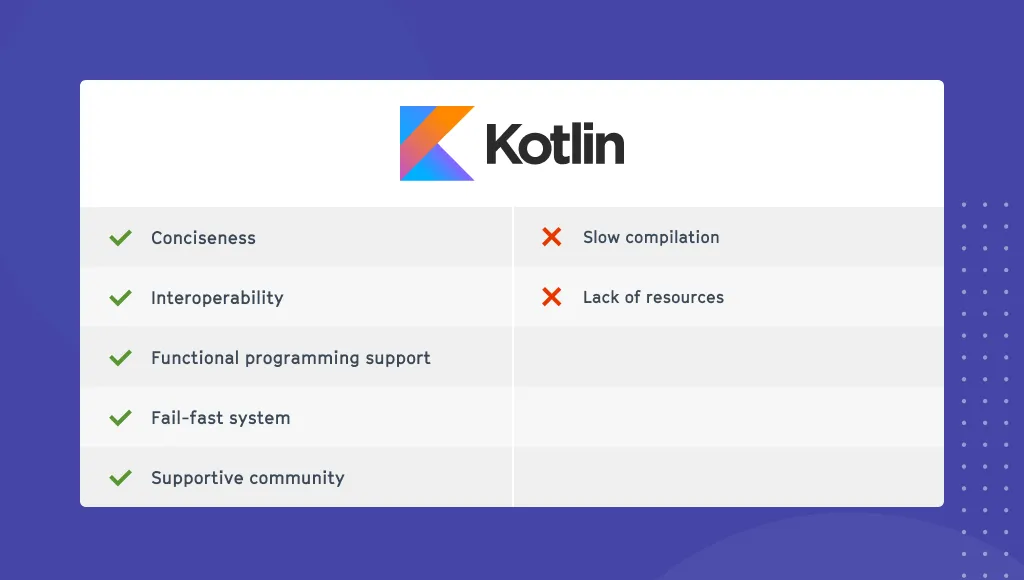
The question is which is better Kotlin or Java. With the appearance of Kotlin this struggle started in 2011, when at the same time, Java was completely beating any new competitors off. With the help of Google and JetBrains, Kotlin was developed to eliminate any of Java’s faults. Beginning with the Google I/O 2017 Developer Conference, Kotlin started to move into a high level.
Is it possible for Kotlin to replace Java completely? Is it difficult to find good Kotlin developers? Here you will find out about this and about the benefits and drawbacks of each language.
Kotlin vs. Java: Intro to Official Android Programming Languages
Android and Java have always been connected. Android SDK is even written in Java. The situation has started to change after the invention of Kotlin. Below you will read about the differences between Kotlin vs. Java in order to understand if adopting Kotlin is worthwhile.
Java Android Development

Java vs. Kotlin: Advantages of Java
If we look at Java and Kotlin, we will see that both languages have positive characteristics worth considering when choosing between them. The advantages of Java are:
- Easy to learn
It is the biggest advantage of Java. This means that it is easy to write, compile, and debug using Java. It has a digestible and understandable syntax and can be a good starting point while learning programming.
- Strong community
It has almost one million repositories on GitHub. That is why, there are thousands of different libraries and frameworks which can be utilized and, as a result, speed up the development process.
- Platform-independent
Java compiler converts the source code to bytecode, which serves as a so-called “intermediate” language. Bytecode can be executed on any platform using Java Virtual Machine. You can even write Java code on Android using a special app called Java N-IDE.
Java vs. Kotlin: Downsides of Java
Just like any other programming language, Java has its disadvantages like:
- Verbosity
Java needs far more code to be written than Kotlin, and that is why there is a higher risk of errors.
On the other hand, Kotlin is clearer and more concise.
- Performance
Unfortunately, Java is slow and consumes more memory space in comparison with Kotlin. Due to the need to load all the classes before work can begin, the startup time is also slower.
- Nullability Problems
NullPoinerExceptions is a real issue for Java developers using non-nullable variables. It can be frustrating because null represents absence of value. Hence, developers need to write additional lines of code to solve this issue.
It may seem that making Android apps with Java is a dead-end job if we take into account all of this. If you want to know more about it, below you will find it out.
Recommendation: Why Use Java in 2019?
After everything mentioned above Kotlin looks like the perfect language to develop with. Why is Java still used today? Read on to find out:
There are Java gurus in a team who don't want to switch to Kotlin.
A team tried Kotlin and was unsatisfied with it.
If a successful project was developed in Java (although, it is not a problem to develop new features in Kotlin, in this case). Don't forget that Java code needs to be supported by Java if you don’t want the transition of the whole project to Kotlin.
Kotlin: New Android Language

Kotlin offers new capabilities for Android development. It compiles with JVM bytecode and can easily be used without dropping off or having to rewrite the whole project.
Kotlin vs. Java: Advantages of Kotlin
In spite of the fact that Kotlin is a new language, it has already shown a lot of benefits in comparison with Java. Below you will read the advantages of Kotlin:
- Conciseness
This language is proven to be more concise than Java. It has been estimated that about 40% in the number of lines of code are cut. The quality increases because there is less space for bugs and errors.
- Interoperability
Kotlin is completely interoperable with Java. JetBrains’ Java to Kotlin converter, integrated into IntelliJ, provides a smooth transition to Java code. Besides, Kotlin supports almost all existing Java libraries and compiles with Java compatible bytecode.
- Functional programming support
Kotlin supports both object-oriented and functional programming. Kotlin has proper function types built in and it can help solve many problems developers face more easily.
- Fail-fast system
Kotlin language has a built-in fail-fast system which helps to reduce bugs and avoid errors in the code. For this purpose, there are three standard library functions: check, require, and assert.
- Supportive community
Despite the fact that it is a young language, it has quite a supportive community. Every developer can join a Kotlin Slack channel where he can get support and help from other Kotlin devs.
Kotlin vs. Java: Weak Points of Kotlin
Every language has its advantages and disadvantages just like Kotlin, which also has some weak points.
- Slow compilation
In comparison with Java, the code compilation process is slower. According to statistics Java compiles 17% faster than Kotlin. On the other hand, for consecutive incremental builds with no files or one isolated/core file changed, the compilation time is almost similar or Kotlin can be a little bit faster.
- Lack of resources
In the last year Kotlin started to become popular, that is why it is not easy to find highly skillful Kotlin developers today.
Kotlin vs. Java - which programming language should you choose for Android app development? Check out this fundamental article with a detailed Kotlin vs. Java comparison further to make the best choice.